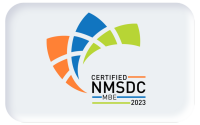For the first time in two years the CLOC Global Institute (CGI) was held at the Bellagio Casino in Las Vegas, and it was my first time attending. Some themes stood out in the presentations and the dozens of conversations I was privileged to have with fellow CLOCers.
Despite the pandemic, CLOC experienced an astonishing 35% growth in 2021 and now has 4000 members in 56 countries. Entering the enormous exhibition hall on the first morning and seeing 2500 attendees momentarily took my breath away. The scale of CGI reflects the growing number and importance of legal operations roles in corporate legal departments.
Legal Operations is Here to Stay
It is clear legal operations professionals are here to stay, occupy more senior positions than ever before, and make critical decisions. If you are a law firm or a legal services provider you need to adjust your business accordingly. If you are graduating from law school and not sure you want to practice, you should consider a future in legal operations. As Paige Medina put it: “A quarter of a century ago, I began a career in legal. I can finally say I found my people! CLOC was an unforgettable experience.”
Beyond the numbers, CGI showed CLOC truly is a community focused on the human side of the law. The sometimes moving presentations from CLOC leadership — including high production value audiovisuals — focused on professional development, community, diversity, personal struggle, and growth. I have not experienced anything quite like it in my twenty-two years in the legal industry.
As the President of CLOC Mike Haven stated in the opening, the very reason that this gathering of thousands was possible is due to legal operations supporting innovation in pharmaceutical companies. CLOC is legal operations with a mission, ambition, and purpose beyond the traditional concerns like reducing legal risk or outside counsel spending. The scope of discussion topics at CGI included innovation, cybersecurity, diversity equity and inclusion (DE&I), privacy, environmental and social governance (ESG), corporate social responsibility (CSR), and even the ramifications of the hybrid workforce.
Legal Ops is Central to a Company’s Purpose
Pride in the idea that the legal department is central, not just to the company’s operations but to the company’s purpose, was on display in a way that was rarely discussed even a few years ago. Legal is not a cost center but a value creator. And as Marcel Paviani and Kirsten Taitelbaum explained, the goal for legal is to be a collaborator and strategic partner for the business units, not an internal vendor. Legal operations solves problems that support the business units and therefore revenue growth, and legal operations can solve problems so effectively that they become an example to the rest of the enterprise.
Modern business concepts, discourse and terminology infused the CGI presentations. Legal departments now have customers and stakeholders, particularly the business units, whose needs should be defined and serviced. For example, one recommendation was that legal operations conduct a voice of the customers (VOC) effort. Interviews and surveys must uncover business units’ needs, their experience (or customer journey) with legal, and how best to support them via tools and processes. VOC initiatives can kick off a legal operations evolution that is at heart about change management.
DE&I Should Be Intrinsic to the Entire Company’s Operations
Discussion around DE&I weaved throughout the conference. The session by Lyndsey Wurst and Laura Diedonne stood out, providing excellent advice on advancing DE&I in the legal department and the company as a whole. According to Caitlin Martinez, the goal is for DE&I to stop being something separate or new but something intrinsic to the entire company’s operations. For TCDI as a company committed to supporting attorney spouses of military personnel through our Military Spouse Managed Review (MSMR) program, this was encouraging to hear.
The broader theme emerged, that the legal department and legal operations are the custodians and advocates of values not just the enforcer of rules and regulations. So legal has a responsibility to advance the interest of underrepresented groups, including veterans, and initiatives in corporate, environmental, and social governance.
There is a Wide Spread of Maturity in Legal Operations
Of course, there was a wide spread of maturity in legal operations among attendees I spoke to; not everyone was in a position to make these kind of contributions. Many were one or two-person operations, struggling for recognition or budget, and focused on solving one persistent pain point. Often that pain point was contract approval, or litigation holds and data collection for eDiscovery, just as it has always been.
Thankfully though, CGI was about the details and the practical, as much as vision and aspiration. Lyndsay Staples and co-hosts presented a very useful session on the new CLOC Maturity Model and Playbook. After months of work, the tool, and playbook allow legal operations to determine their level of maturity and then the next set of actions — including policy, tools, and workflow — that advance them further.
Jana Friedman and Tana Smirnoff noted that those in the early maturity of legal operations should focus on solving `legal intake’ (or `legal front door’) challenges to reduce the administrative burden of, for example, litigation holds, matter management, 3rd party subpoenas, contracts and NDAs. If tasks are high frequency and high time burden but low risk, you should outsource or automate. This is the only way to keep up with the ever-increasing demands on legal operations to do more with the same or less budget.
A focus on the People and Process Side of Legal Operations
The ‘people, process and technology’ framework for legal operations was mentioned frequently and technology and software tools were on full display in the CGI exhibit hall. There was a proliferation of new vendors and tools, including those with the omnipresent AI and new low code/no-code platforms. Yet overall CGI focused on the people and process side of legal operations. There was less emphasis on technology and tools in the discussions than I expected, including a sense that AI was not yet mature enough to truly move the needle.
Attendees broadly agreed that some areas like discovery and litigation management mostly continue to defy a single software platform or an automation solution. They grow more complex: with more data types, volumes, stakeholders, and requirements. The consensus was that eDiscovery requires excellence in legal operations around process — and the experience and efficiency of the service provider — more than the tools being used. As CLOC leader and legal operations thought-leader, Mary O’Carrol observed: “tools don’t fix process.”
Just the Beginning for Legal Operations
CLOC is a surprisingly passionate and fascinating group of problem solvers, fixers, innovators, and disruptors, as Lean DeSilva and others said. The community has passion and ambition far beyond the traditional concerns of in-house legal departments. And although I have never had a legal operations title, having billed time to fix problems for corporate and law firm clients over the last twenty years, I am glad to be part of it.
Carl Morrison, a CLOC thought leader and personality, perhaps summarized this year’s CGI best: “This is just the beginning. The beginning of new chapters in some people’s work lives. The creation of new innovations and new technology. The ability to grow and evolve individually and more importantly, together. Our industry’s future is bright and I look forward to continuing to be a big part of it. Until we see each other again.”






